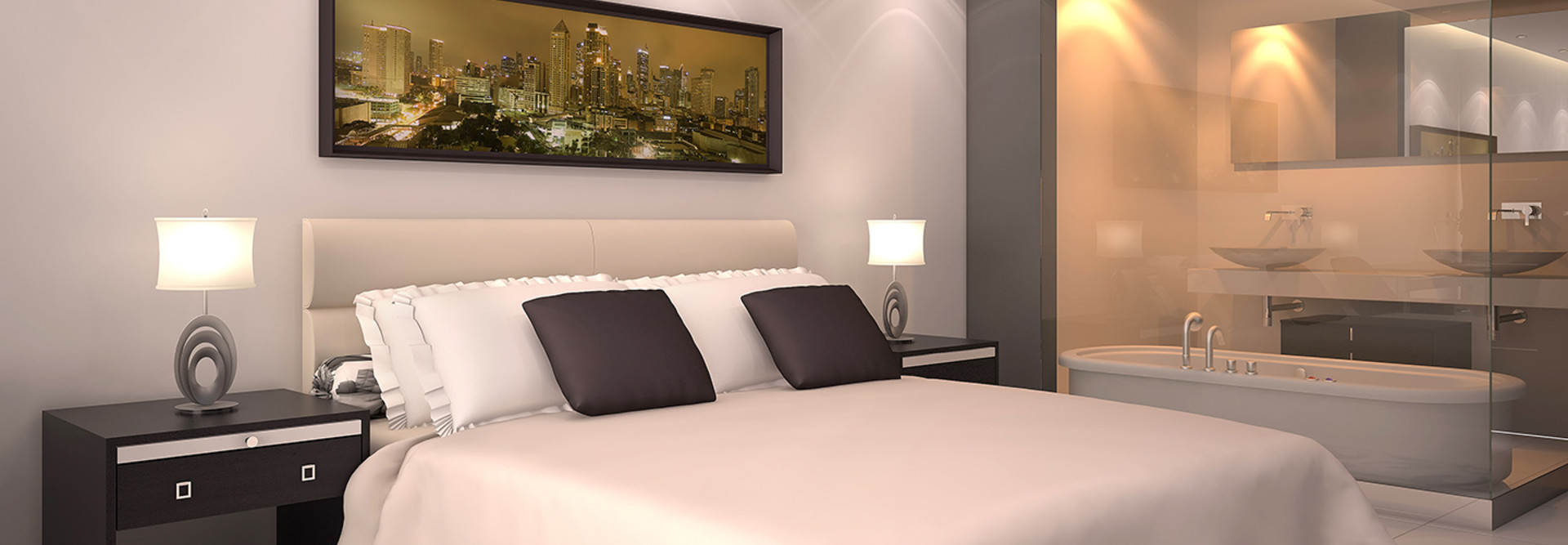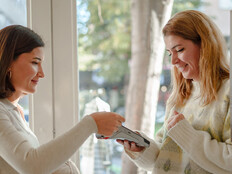The Hospitality Industry Is Getting a High-Tech Makeover
Building and maintaining strong customer relationships is crucial for long-term success in the hospitality industry. To seal customer loyalty, hospitality businesses of every type can now take advantage of a wide range of affordable, easy-to-deploy technologies that result in a competitive advantage and meet guest expectations for quality, value, promptness, responsiveness and flexibility. These solutions also offer a wide range of other service attributes that lead to repeat sales.
Technology is no longer just solving backend business problems or allowing guests to connect their devices to the Internet, observes Sanjay Garg, senior product manager for hospitality marketing and solutions with Aruba Networks. "Today, technology is enabling the industry to offer guests an immersive, personalized experience like never before, from wayfinding and push notifications based on their location and personal preferences to simplified check-in/checkout and a more 'homelike' experience while they're traveling," he says. "Technology is no longer just about infrastructure; it is a true enabler for offering the traveler a 'wow' experience in every step of their journey."
Catering to Millennials' Preferences
Millennials are destined to reshape the hospitality industry over the next decade. "This continuously-connected generation places a high importance on personalization and memorable experience in their travels, and technology is the enabler," Garg says. "Hotel chains are responding to this shift in their customer base by creating or purchasing boutique brands to add to their portfolio, and this is where we'll start to see technology and experiential travel developments first."
"Mobile apps, combined with loyalty rewards programs, now allow hospitality providers to create a persona-based experience," says Perry Kramer, vice president and practice lead for customer engagement with Boston Retail Partners, a consulting firm. Using data supplied by a guest via an app, a hotelier can immediately see and accommodate preferences, such as a lower or upper floor, a handicapped room or dietary needs. "This speeds check-ins, increasing customer satisfaction, and encourages return visits," Kramer says.
Regardless of the communication channel — mobile app, website or social media — hoteliers must ensure they provide relevant and meaningful information to guests. Developing the right engagement approach requires both careful planning and insight. "Hospitality providers must start by understanding how they want to serve the customer, rather than first starting with technology," Garg says. "They can then work with a technology partner who can help them deliver on their vision of the desired customer experience."
Using Data to Save Money
Data flowing in from mobile apps, websites, social media and on-premises sources — such as room sensors, information kiosks and in-room entertainment systems — opens the door to a wide range of actionable metrics. With the right data, hotels can quickly adapt operations and marketing practices to meet guests’ preferences, improve efficiency and increase revenue. If a door lock sensor, for example, detects that a guest has left his or her room for more than a specified number minutes, energy consumption can be automatically reduced, cutting costs and reducing energy consumption.
Data, collected from guests or external sources, can also be used to power predictive analytics, enabling a hospitality provider to make accurate, financially beneficial predictions about a wide range of future events. Predictive analytics encompasses a variety of techniques, including statistical modeling, data mining and complex mathematical algorithms, to analyze current and historical facts and deliver powerful insights about the future. "It can be as simple as hooking into external factors, such as the weather, a sporting event, a convention, a reunion — information that a hospitality provider would be able to use to get a better indication of what is about to happen," says Jon Stine, global director of retail sales for Intel.
Insights from predictive analytics can be used for long-term planning or to make rapid, on-the-spot, revenue-enhancing decisions. For example, does it make sense to refuse a customer an open room on a same-day booking if a predictive analytics-based revenue optimization system projects that a more profitable guest is likely to arrive later in the day?
Envisioning Futuristic Technolgy
The hospitality industry's interest in new technologies shows no sign of slowing down. A recent study conducted by Hospitality Magazine surveyed IT decision-makers with oversight for more than 29,700 hotels for their top futuristic technology choices. Services selected by the respondents included gesture-controlled interactive walls (36 percent), bathroom mirrors that function as an interactive display (32 percent), robotics — such as a robot concierge or butler — (22 percent), electro-responsive fibers in bedding that monitor stress levels and sleep patterns (22 percent) and personal holograms to serve as guides (14 percent).
Regardless of whether any of these technologies becomes reality, Garg envisions a world where hotel operators are in constant touch with guests, building loyalty and sales. "Imagine connecting with a traveler from the planning stage through every step of their journey," he says. "Predictive, proactive and actionable data opens the door to new travel experiences, from offering a personal booking experience to a seamless and personalized check-in, to a room specially configured to a guest's preferences, to ensuring that guests never get lost while they are on-site — the possibilities are endless."









